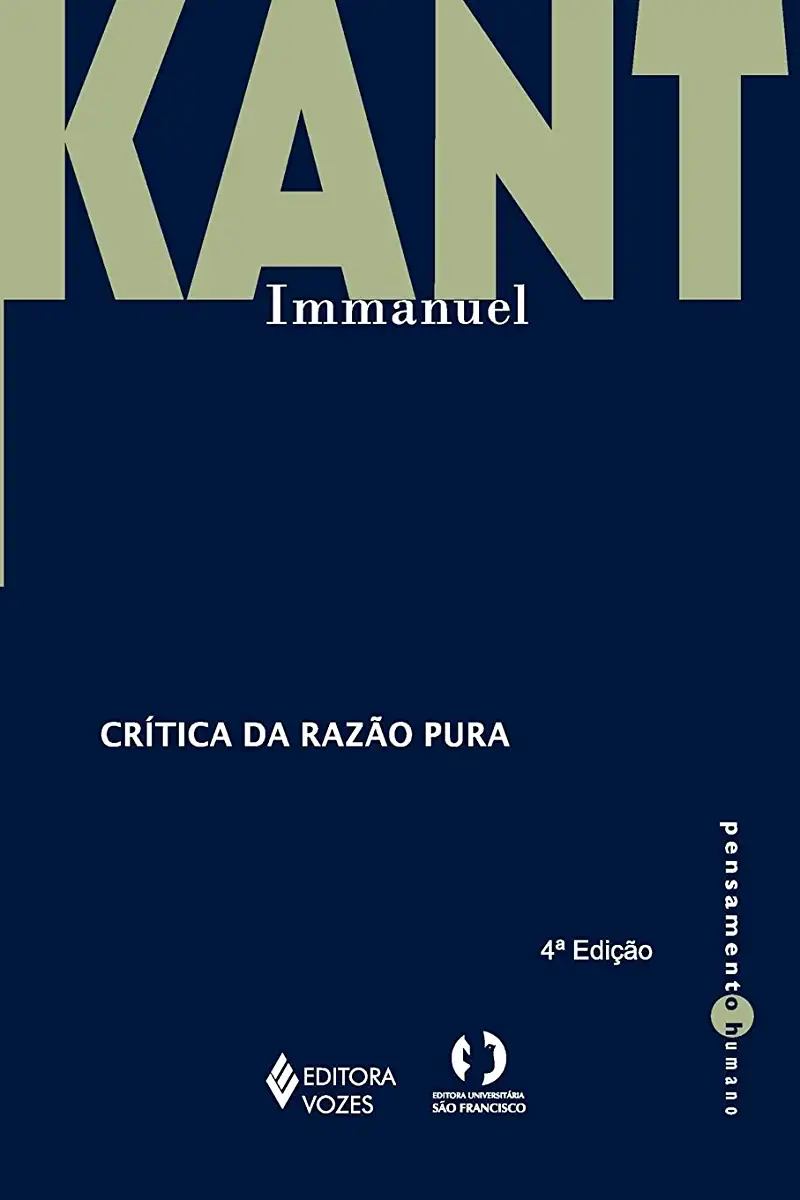
Immanuel Kant - Critique of Pure Reason
Immanuel Kant's Critique of Pure Reason: A Landmark in Philosophical Thought
Immanuel Kant's Critique of Pure Reason is a seminal work in the history of philosophy, widely regarded as one of the most influential philosophical texts ever written. Published in 1781, this groundbreaking work revolutionized the field of epistemology, challenging traditional notions of knowledge and reality. Kant's Critique offers a profound exploration of the nature of human understanding, the limits of human reason, and the relationship between our minds and the world we perceive.
A Journey into the Depths of Human Knowledge
Kant begins his inquiry by questioning the foundations of human knowledge. He argues that our understanding of the world is not simply a passive reception of sensory information but rather an active process of organizing and interpreting our experiences. Kant identifies two fundamental sources of knowledge: sense experience and the categories of understanding. Sense experience provides us with raw data about the world, while the categories of understanding, such as space, time, and causality, allow us to organize and make sense of this data.
The Limits of Human Reason
Kant argues that human reason has inherent limitations and cannot fully comprehend the nature of reality in itself. He distinguishes between the world as it appears to us (the phenomenal world) and the world as it exists independently of our minds (the noumenal world). The phenomenal world is the realm of our experience, shaped by our sensory perceptions and the categories of understanding. The noumenal world, on the other hand, is beyond our direct experience and remains inaccessible to our finite minds.
The Transcendental Unity of Apperception
At the heart of Kant's philosophy lies the concept of the transcendental unity of apperception. This refers to the unity of consciousness that underlies all our experiences and makes them possible. Kant argues that this unity is not simply a psychological phenomenon but rather a transcendental condition for the possibility of knowledge. It is the unity of consciousness that allows us to synthesize our diverse experiences into a coherent and meaningful whole.
The Transcendental Deduction of the Categories
One of the most significant contributions of Kant's Critique is his transcendental deduction of the categories. Kant argues that the categories of understanding are not simply abstract concepts but rather necessary conditions for the possibility of experience. He demonstrates that these categories are not derived from experience but rather are a priori, meaning they exist prior to and independent of experience. This groundbreaking argument challenges the traditional empiricist view that all knowledge is derived from sense experience.
The Antinomies of Pure Reason
Kant's exploration of the limits of human reason leads him to identify a series of antinomies, or pairs of contradictory propositions, that arise when we attempt to apply our categories of understanding to the noumenal world. These antinomies reveal the inherent limitations of our reason and highlight the distinction between the phenomenal and noumenal realms.
The Significance of Kant's Critique
Immanuel Kant's Critique of Pure Reason has had a profound and lasting impact on philosophical thought. It challenged the prevailing empiricism of the 18th century and paved the way for the development of modern philosophy. Kant's insights into the nature of knowledge, the limits of reason, and the relationship between our minds and the world continue to inspire and challenge philosophers to this day.
Why You Should Read Critique of Pure Reason
Immanuel Kant's Critique of Pure Reason is a must-read for anyone interested in philosophy, epistemology, or the nature of human knowledge. It is a challenging yet rewarding work that offers a deep and nuanced exploration of the foundations of human understanding. Kant's profound insights and rigorous arguments have shaped the course of philosophical thought for centuries and continue to resonate with readers today.
If you are seeking a transformative intellectual journey, delve into the pages of Kant's Critique of Pure Reason. Prepare to have your assumptions challenged, your understanding deepened, and your perspective on the world expanded. Embrace the opportunity to engage with one of the greatest minds in the history of philosophy and discover the enduring significance of this philosophical masterpiece.
Enjoyed the summary? Discover all the details and take your reading to the next level — [click here to view the book on Amazon!]